
“Famous Scientists Who Believed in God”
Richard Deem - CreationWiki, the encyclopedia of creation science
By, Rich Deem
Belief in God: Is belief in the existence of God irrational? These days, many famous scientists are also strong proponents of atheism. However, in the past and even today, many scientists believe that God exists and is responsible for what we see in nature. This is a small sampling of scientists who contributed to the development of modern science while believing in God. Although many people believe in a "God of the gaps", these scientists, and still others alive today, believe because of the evidence.
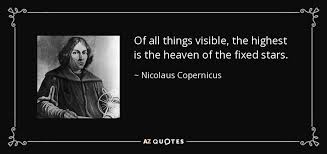 Nicholas Copernicus (1473-1543) Copernicus was the Polish astronomer who put forward the first mathematically based system of planets going around the sun. He attended various European universities, and became a Canon in the Catholic Church in 1497. His new system was actually first presented in the Vatican gardens in 1533 before Pope Clement VII who approved, and urged Copernicus to publish it around this time. Copernicus was never under any threat of religious persecution - and was urged to publish both by Catholic Bishop Guise, Cardinal Schonberg, and the Protestant Professor George Rheticus. Copernicus referred sometimes to God in his works, and did not see his system as in conflict with the Bible.
Nicholas Copernicus (1473-1543) Copernicus was the Polish astronomer who put forward the first mathematically based system of planets going around the sun. He attended various European universities, and became a Canon in the Catholic Church in 1497. His new system was actually first presented in the Vatican gardens in 1533 before Pope Clement VII who approved, and urged Copernicus to publish it around this time. Copernicus was never under any threat of religious persecution - and was urged to publish both by Catholic Bishop Guise, Cardinal Schonberg, and the Protestant Professor George Rheticus. Copernicus referred sometimes to God in his works, and did not see his system as in conflict with the Bible.
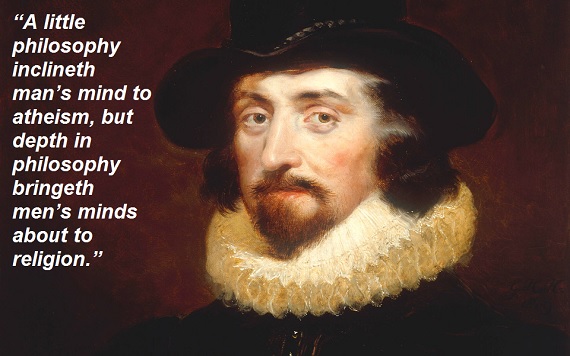
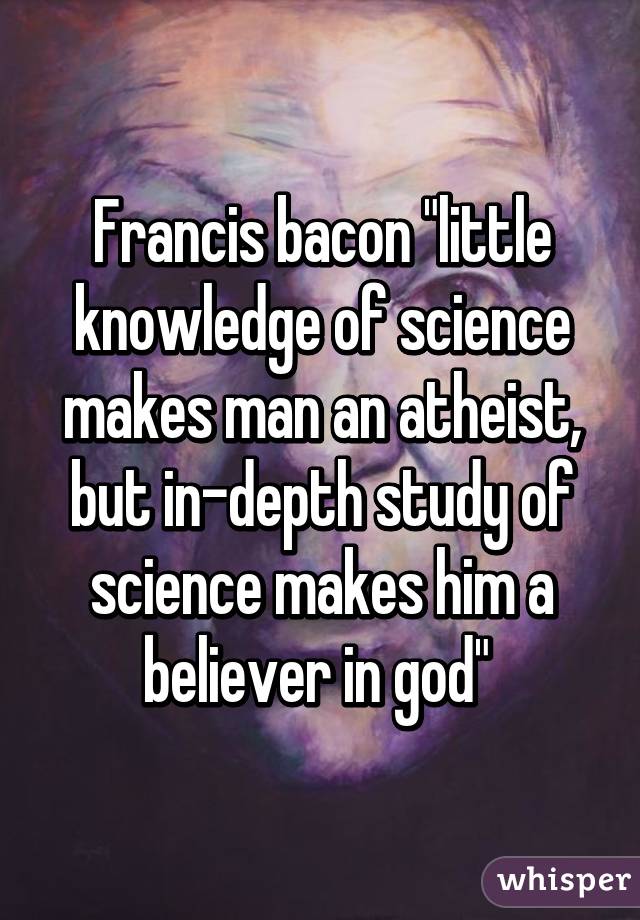 Sir Francis Bacon (1561-1627) Bacon was a philosopher who is known for establishing the scientific method of inquiry based on experimentation and inductive reasoning. In De Interpretation Naturae Prooemium, Bacon established his goals as being the discovery of truth, service to his country, and service to the church. Although his work was based upon experimentation and reasoning, he rejected atheism as being the result of insufficient depth of philosophy, stating, "It is true, that a little philosophy inclineth man’s mind to atheism, but depth in philosophy bringeth men's minds about to religion; for while the mind of man looketh upon second causes scattered, it may sometimes rest in them, and go no further; but when it beholdeth the chain of them confederate, and linked together, it must needs fly to Providence and Deity." (Of Atheism)
Sir Francis Bacon (1561-1627) Bacon was a philosopher who is known for establishing the scientific method of inquiry based on experimentation and inductive reasoning. In De Interpretation Naturae Prooemium, Bacon established his goals as being the discovery of truth, service to his country, and service to the church. Although his work was based upon experimentation and reasoning, he rejected atheism as being the result of insufficient depth of philosophy, stating, "It is true, that a little philosophy inclineth man’s mind to atheism, but depth in philosophy bringeth men's minds about to religion; for while the mind of man looketh upon second causes scattered, it may sometimes rest in them, and go no further; but when it beholdeth the chain of them confederate, and linked together, it must needs fly to Providence and Deity." (Of Atheism)
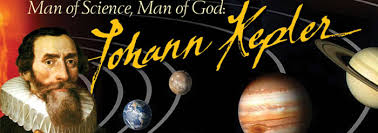 Johannes Kepler (1571-1630) Kepler was a brilliant mathematician and astronomer. He did early work on light, and established the laws of planetary motion about the sun. He also came close to reaching the Newtonian concept of universal gravity - well before Newton was born! His introduction of the idea of force in astronomy changed it radically in a modern direction. Kepler was an extremely sincere and pious Lutheran, whose works on astronomy contain writings about how space and the heavenly bodies represent the Trinity. Kepler suffered no persecution for his open avowal of the sun-centered system, and, indeed, was allowed as a Protestant to stay in Catholic Graz as a Professor (1595-1600) when other Protestants had been expelled!
Johannes Kepler (1571-1630) Kepler was a brilliant mathematician and astronomer. He did early work on light, and established the laws of planetary motion about the sun. He also came close to reaching the Newtonian concept of universal gravity - well before Newton was born! His introduction of the idea of force in astronomy changed it radically in a modern direction. Kepler was an extremely sincere and pious Lutheran, whose works on astronomy contain writings about how space and the heavenly bodies represent the Trinity. Kepler suffered no persecution for his open avowal of the sun-centered system, and, indeed, was allowed as a Protestant to stay in Catholic Graz as a Professor (1595-1600) when other Protestants had been expelled!
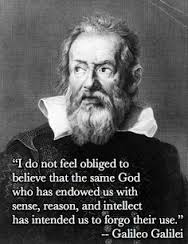
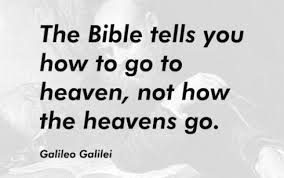 Galileo Galilei (1564-1642) Galileo is often remembered for his conflict with the Roman Catholic Church. His controversial work on the solar system was published in 1633. It had no proofs of a sun-centered system (Galileo's telescope discoveries did not indicate a moving earth) and his one "proof" based upon the tides was invalid. It ignored the correct elliptical orbits of planets published twenty five years earlier by Kepler. Since his work finished by putting the Pope's favorite argument in the mouth of the simpleton in the dialogue, the Pope (an old friend of Galileo's) was very offended. After the "trial" and being forbidden to teach the sun-centered system, Galileo did his most useful theoretical work, which was on dynamics. Galileo expressly said that the Bible cannot err, and saw his system as an alternate interpretation of the biblical texts.
Galileo Galilei (1564-1642) Galileo is often remembered for his conflict with the Roman Catholic Church. His controversial work on the solar system was published in 1633. It had no proofs of a sun-centered system (Galileo's telescope discoveries did not indicate a moving earth) and his one "proof" based upon the tides was invalid. It ignored the correct elliptical orbits of planets published twenty five years earlier by Kepler. Since his work finished by putting the Pope's favorite argument in the mouth of the simpleton in the dialogue, the Pope (an old friend of Galileo's) was very offended. After the "trial" and being forbidden to teach the sun-centered system, Galileo did his most useful theoretical work, which was on dynamics. Galileo expressly said that the Bible cannot err, and saw his system as an alternate interpretation of the biblical texts.
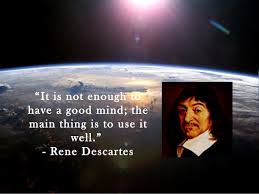
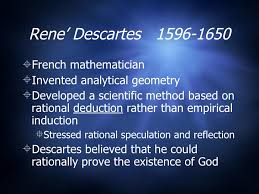 Rene Descartes Scientist/Philosopher (1596-1650) Descartes was a French mathematician, scientist and philosopher who has been called the father of modern philosophy. His school studies made him dissatisfied with previous philosophy: He had a deep religious faith as a Roman Catholic, which he retained to his dying day, along with a resolute, passionate desire to discover the truth. At the age of 24 he had a dream, and felt the vocational call to seek to bring knowledge together in one system of thought. His system began by asking what could be known if all else were doubted - suggesting the famous "I think therefore I am". Actually, it is often forgotten that the next step for Descartes was to establish the near certainty of the existence of God - for only if God both exists and would not want us to be deceived by our experiences - can we trust our senses and logical thought processes. God is, therefore, central to his whole philosophy. What he really wanted to see was that his philosophy be adopted as standard Roman Catholic teaching. Rene Descartes and Francis Bacon (1561-1626) are generally regarded as the key figures in the development of scientific methodology. Both had systems in which God was important, and both seem more devout than the average for their era.
Rene Descartes Scientist/Philosopher (1596-1650) Descartes was a French mathematician, scientist and philosopher who has been called the father of modern philosophy. His school studies made him dissatisfied with previous philosophy: He had a deep religious faith as a Roman Catholic, which he retained to his dying day, along with a resolute, passionate desire to discover the truth. At the age of 24 he had a dream, and felt the vocational call to seek to bring knowledge together in one system of thought. His system began by asking what could be known if all else were doubted - suggesting the famous "I think therefore I am". Actually, it is often forgotten that the next step for Descartes was to establish the near certainty of the existence of God - for only if God both exists and would not want us to be deceived by our experiences - can we trust our senses and logical thought processes. God is, therefore, central to his whole philosophy. What he really wanted to see was that his philosophy be adopted as standard Roman Catholic teaching. Rene Descartes and Francis Bacon (1561-1626) are generally regarded as the key figures in the development of scientific methodology. Both had systems in which God was important, and both seem more devout than the average for their era.
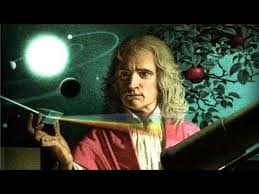 Isaac Newton (1642-1727) in optics, mechanics, and mathematics, Newton was a figure of undisputed genius and innovation. In all his science (including chemistry) he saw mathematics and numbers as central. What is less well known is that he was devoutly religious and saw numbers as involved in understanding God's plan for history from the Bible. He did a considerable work on biblical numerology, and, though aspects of his beliefs were not orthodox, he thought theology was very important. In his system of physics, God is essential to the nature and absoluteness of space. In Principia he stated, "The most beautiful system of the sun, planets, and comets, could only proceed from the counsel and dominion of an intelligent and powerful Being.
Isaac Newton (1642-1727) in optics, mechanics, and mathematics, Newton was a figure of undisputed genius and innovation. In all his science (including chemistry) he saw mathematics and numbers as central. What is less well known is that he was devoutly religious and saw numbers as involved in understanding God's plan for history from the Bible. He did a considerable work on biblical numerology, and, though aspects of his beliefs were not orthodox, he thought theology was very important. In his system of physics, God is essential to the nature and absoluteness of space. In Principia he stated, "The most beautiful system of the sun, planets, and comets, could only proceed from the counsel and dominion of an intelligent and powerful Being.
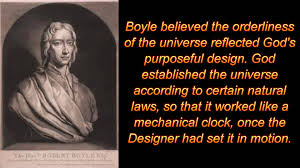 Robert Boyle (1791-1867) one of the founders and key early members of the Royal Society, Boyle gave his name to "Boyle's Law" for gases, and also wrote an important work on chemistry. Encyclopedia Britannica says of him: "By his will he endowed a series of Boyle lectures, or sermons, which still continue, 'for proving the Christian religion against notorious infidels...' As a devout Protestant, Boyle took a special interest in promoting the Christian religion abroad, giving money to translate and publish the New Testament into Irish and Turkish. In 1690 he developed his theological views in The Christian Virtuoso, which he wrote to show that the study of nature was a central religious duty." Boyle wrote against atheists in his day (the notion that atheism is a modern invention is a myth), and was clearly much more devoutly Christian than the average in his era.
Robert Boyle (1791-1867) one of the founders and key early members of the Royal Society, Boyle gave his name to "Boyle's Law" for gases, and also wrote an important work on chemistry. Encyclopedia Britannica says of him: "By his will he endowed a series of Boyle lectures, or sermons, which still continue, 'for proving the Christian religion against notorious infidels...' As a devout Protestant, Boyle took a special interest in promoting the Christian religion abroad, giving money to translate and publish the New Testament into Irish and Turkish. In 1690 he developed his theological views in The Christian Virtuoso, which he wrote to show that the study of nature was a central religious duty." Boyle wrote against atheists in his day (the notion that atheism is a modern invention is a myth), and was clearly much more devoutly Christian than the average in his era.
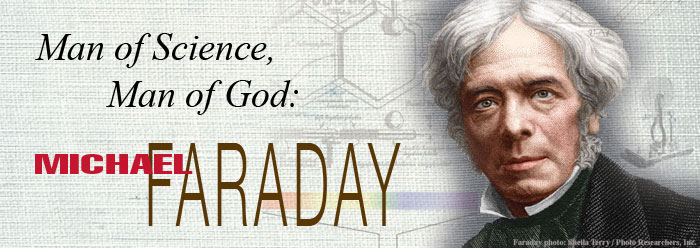 Michael Faraday (1791-1867) Michael Faraday was the son of a blacksmith who became one of the greatest scientists of the 19th century. His work on electricity and magnetism not only revolutionized physics, but led too much of our lifestyles today, which depends on them (including computers and telephone lines and, so, web sites). Faraday was a devoutly Christian member of the Sandemanians, which significantly influenced him and strongly affected the way in which he approached and interpreted nature. Originating from Presbyterians, the Sandemanians rejected the idea of state churches, and tried to go back to a New Testament type of Christianity.
Michael Faraday (1791-1867) Michael Faraday was the son of a blacksmith who became one of the greatest scientists of the 19th century. His work on electricity and magnetism not only revolutionized physics, but led too much of our lifestyles today, which depends on them (including computers and telephone lines and, so, web sites). Faraday was a devoutly Christian member of the Sandemanians, which significantly influenced him and strongly affected the way in which he approached and interpreted nature. Originating from Presbyterians, the Sandemanians rejected the idea of state churches, and tried to go back to a New Testament type of Christianity.
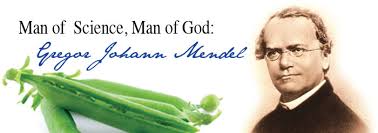 Gregor Mendel (1822-1884) Mendel was the first to lay the mathematical foundations of genetics, in what came to be called "Mendelianism". He began his research in 1856 (three years before Darwin published his Origin of Species) in the garden of the Monastery in which he was a monk. Mendel was elected Abbot of his Monastery in 1868. His work remained comparatively unknown until the turn of the century, when a new generation of botanists began finding similar results and "rediscovered" him (though their ideas were not identical to his). An interesting point is that the 1860’s were notable for formation of the X-Club, which was dedicated to lessening religious influences and propagating an image of "conflict" between science and religion. One sympathizer was Darwin's cousin Francis Galton, whose scientific interest was in genetics (a proponent of eugenics - selective breeding among humans to "improve" the stock). He was writing how the "priestly mind" was not conducive to science while, at around the same time, an Austrian monk was making the breakthrough in genetics. The rediscovery of the work of Mendel came too late to affect Galton's contribution.
Gregor Mendel (1822-1884) Mendel was the first to lay the mathematical foundations of genetics, in what came to be called "Mendelianism". He began his research in 1856 (three years before Darwin published his Origin of Species) in the garden of the Monastery in which he was a monk. Mendel was elected Abbot of his Monastery in 1868. His work remained comparatively unknown until the turn of the century, when a new generation of botanists began finding similar results and "rediscovered" him (though their ideas were not identical to his). An interesting point is that the 1860’s were notable for formation of the X-Club, which was dedicated to lessening religious influences and propagating an image of "conflict" between science and religion. One sympathizer was Darwin's cousin Francis Galton, whose scientific interest was in genetics (a proponent of eugenics - selective breeding among humans to "improve" the stock). He was writing how the "priestly mind" was not conducive to science while, at around the same time, an Austrian monk was making the breakthrough in genetics. The rediscovery of the work of Mendel came too late to affect Galton's contribution.
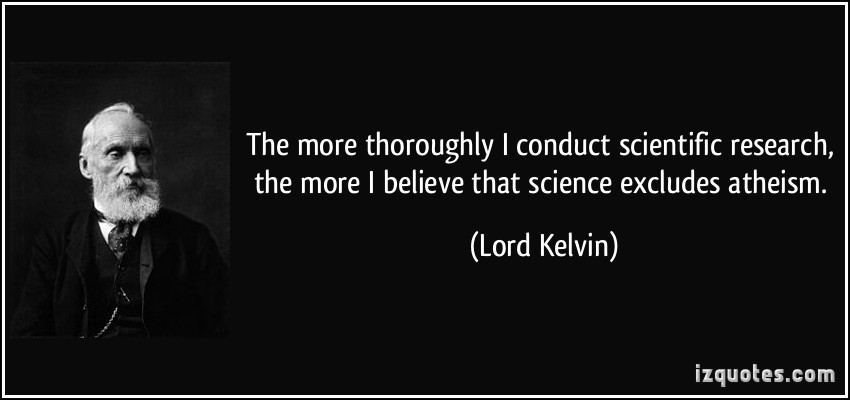 William Thomson Kelvin (1824-1907) Kelvin was foremost among the small group of British scientists who helped to lay the foundations of modern physics. His work covered many areas of physics, and he was said to have more letters after his name than anyone else in the Commonwealth, since he received numerous honorary degrees from European Universities, which recognized the value of his work. He was a very committed Christian, who was certainly more religious than the average for his era. Interestingly, his fellow physicists George Gabriel Stokes (1819-1903) and James Clerk Maxwell (1831-1879) were also men of deep Christian commitment, in an era when many were nominal, apathetic, or anti-Christian. The Encyclopedia Britannica says "Maxwell is regarded by most modern physicists as the scientist of the 19th century who had the greatest influence on 20th century physics; he is ranked with Sir Isaac Newton and Albert Einstein for the fundamental nature of his contributions." Lord Kelvin was an Old Earth creationist ↔ http://creation.com/old-earth-evidence who estimated the Earth's age to be somewhere between 20 million and 100 million years, with an upper limit at 500 million years based on cooling rates (a low estimate due to his lack of knowledge about radiogenic heating).
William Thomson Kelvin (1824-1907) Kelvin was foremost among the small group of British scientists who helped to lay the foundations of modern physics. His work covered many areas of physics, and he was said to have more letters after his name than anyone else in the Commonwealth, since he received numerous honorary degrees from European Universities, which recognized the value of his work. He was a very committed Christian, who was certainly more religious than the average for his era. Interestingly, his fellow physicists George Gabriel Stokes (1819-1903) and James Clerk Maxwell (1831-1879) were also men of deep Christian commitment, in an era when many were nominal, apathetic, or anti-Christian. The Encyclopedia Britannica says "Maxwell is regarded by most modern physicists as the scientist of the 19th century who had the greatest influence on 20th century physics; he is ranked with Sir Isaac Newton and Albert Einstein for the fundamental nature of his contributions." Lord Kelvin was an Old Earth creationist ↔ http://creation.com/old-earth-evidence who estimated the Earth's age to be somewhere between 20 million and 100 million years, with an upper limit at 500 million years based on cooling rates (a low estimate due to his lack of knowledge about radiogenic heating).
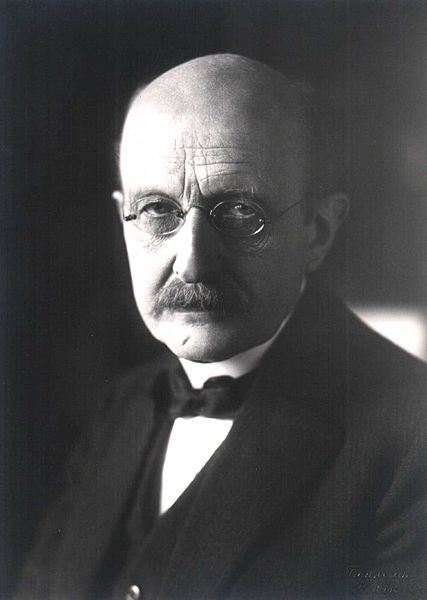 Max Planck (1858-1947) Planck made many contributions to physics, but is best known for quantum theory, which revolutionized our understanding of the atomic and sub-atomic worlds. In his 1937 lecture "Religion and Naturwissenschaft," Planck expressed the view that God is everywhere present, and held that "the holiness of the unintelligible God head is conveyed by the holiness of symbols." Atheists, he thought, attach too much importance to what are merely symbols. Planck was a churchwarden from 1920 until his death, and believed in an almighty, all-knowing, beneficent God (though not necessarily a personal one). Both science and religion wage a "tireless battle against skepticism and dogmatism, against unbelief and superstition" with the goal "toward God!"
Max Planck (1858-1947) Planck made many contributions to physics, but is best known for quantum theory, which revolutionized our understanding of the atomic and sub-atomic worlds. In his 1937 lecture "Religion and Naturwissenschaft," Planck expressed the view that God is everywhere present, and held that "the holiness of the unintelligible God head is conveyed by the holiness of symbols." Atheists, he thought, attach too much importance to what are merely symbols. Planck was a churchwarden from 1920 until his death, and believed in an almighty, all-knowing, beneficent God (though not necessarily a personal one). Both science and religion wage a "tireless battle against skepticism and dogmatism, against unbelief and superstition" with the goal "toward God!"
 Albert Einstein (1879-1955) Quote: "The more I study science, the more I believe in God" ... Einstein is probably the best known and most highly revered scientist of the twentieth century, and is associated with major revolutions in our thinking about time, gravity, and the conversion of matter to energy (E=mc2). Although never coming to belief in a personal God, he recognized the impossibility of a non-created universe. The Encyclopedia Britannica says of him: "Firmly denying atheism, Einstein expressed a belief in "Spinoza's God who reveals himself in the harmony of what exists." This actually motivated his interest in science, as he once remarked to a young physicist: "I want to know how God created this world; I am not interested in this or that phenomenon, in the spectrum of this or that element. I want to know His thoughts, the rest are details." Einstein's famous epithet on the "uncertainty principle" was "God does not play dice" - and to him this was a real statement about a God in whom he believed. A famous saying of his was "Science without religion is lame, religion without science is blind."
Albert Einstein (1879-1955) Quote: "The more I study science, the more I believe in God" ... Einstein is probably the best known and most highly revered scientist of the twentieth century, and is associated with major revolutions in our thinking about time, gravity, and the conversion of matter to energy (E=mc2). Although never coming to belief in a personal God, he recognized the impossibility of a non-created universe. The Encyclopedia Britannica says of him: "Firmly denying atheism, Einstein expressed a belief in "Spinoza's God who reveals himself in the harmony of what exists." This actually motivated his interest in science, as he once remarked to a young physicist: "I want to know how God created this world; I am not interested in this or that phenomenon, in the spectrum of this or that element. I want to know His thoughts, the rest are details." Einstein's famous epithet on the "uncertainty principle" was "God does not play dice" - and to him this was a real statement about a God in whom he believed. A famous saying of his was "Science without religion is lame, religion without science is blind."
https://www.youtube.com/watch?v=CLuBfd0JQrg
https://www.youtube.com/watch?v=z-sBp4D9dMU
Has Science Discovered God? - https://www.youtube.com/watch?v=nEkWz6DAAOU
Don L. Johnson: 
 (1944-2017) - My Position is basically the same as Einstein's belief with the exception of the "Essential-Involvement of "God's Son - Jesus Christ" ... In other words, as Creation is to the Universe ... So to are Miracles of Involvement Starting with, http://strangenotions.com/why-our-unique-solar-system-points-to-God/ - Thus life as we know it today and into the thereafter throughout our lives that are Essential when God seems to Care in Times Involved of Despair. That said, (Consider Jesus Christ's suffering on the cross) for we, the sinners alike...
(1944-2017) - My Position is basically the same as Einstein's belief with the exception of the "Essential-Involvement of "God's Son - Jesus Christ" ... In other words, as Creation is to the Universe ... So to are Miracles of Involvement Starting with, http://strangenotions.com/why-our-unique-solar-system-points-to-God/ - Thus life as we know it today and into the thereafter throughout our lives that are Essential when God seems to Care in Times Involved of Despair. That said, (Consider Jesus Christ's suffering on the cross) for we, the sinners alike...
I believe in Miracles... For instance, besides the Many Essential Miracles of my past - that has literally saved my life - let's just take hereto - presently - of what you are now reading... I am now 73 years old and throughout my life I hated reading and writing let alone Studying with it... It has only been in my past 15-20 years or so that I became addicted to it... It has literally taken over the Time of my life as an Obsession... Every day I can't wait to learn more and more - without theory of the Essential Involvement of - "God Creation" through whatever means possible for new knowledge on the subjects matters of importance that I can Logically Prove and complement my way of thinking ... As in this Essays (Famous People Who Believe in God) Proves - along with their photo pictures - as in a show and tell Correlation - for the purpose of Mindful Thinking ... as to pass on to you...
All I know is that my mind wasn't compatible to what and how I think today of which tells me that for what ever reason (God doesn't always call the Equipped, when can He Equip the called) - as I feel he has done with me and that took another Giant Miracle in my active life, because most certainly I wasn't equipped! After all, what do you expect from a meager brain? But, still, All I can say is that it is inconceivable of the Vast amount of Hits I've been getting Regardless of the hugh gap of my handicap!
However, I can't deny the Miracles of my lifes childhood Memoirs .. Biographical Memoir .. Why me? even Einstein couldn't figure that one out... All I can say is that (It is what it Is - as being of a complicated Quiz) ... I don't believe in a God with a long beard wearing a white gown with His elbow resting on a fluffy cloud just waiting for me to ask Him for a Miracle of getting rid of my ingrown toenails and or plantar fasciitis that hurt like hell... However, there are others that are in excruciating pain as of now that are much more serious than my trivial pain to be thankfully fortunate that I don't have... But why are there so much pain-and-suffering - in the first place - in this in-perfect world we live? Think about it... I can guarantee you that Stephen Hawking's thought long about it of which made him a nonbeliever - and you can't blame him!
You see, I believe that hell is right Here on Earth and we are living on and in it to certain degrees... And I also believe that what goes around comes back around to the reincarnated Evidence for Reincarnation in the Bible - Reincarnation and the Bible until we get it right... Remember, this battle started in heaven, but all we have to do is to decide which side we are on... To my way of thinking, it should be the obvious choice to make, but then again, those Fallen Angels must have been very stupid to get thrown out of heaven - where we acknowledged to go, but act like we don't know - so we reap what we sow...
Look, Donald Trump is nothing more than a Russian idiotic Surrogate of Putin's - who without common sense would make idiotic fools out of anyone who willingly listens and follows him... That said, who doesn't know the story of Lucifer and his fallen Angels? well, this brings to mind the arrogant and selfish Angel of Lucifer and his fallen Angels who fought alongside of Lucifer's idiotic war against God, thus, as written, his relentless pursuit to hell with his idiotic followers as well!
within open mind and a strong desire for the truth, all it takes is a little common sense in order to understand the most valuable parallel content ever told, and to the following links, http://brussellsprout.blogspot.com/2012/11/every-now-and-then-i-stumble-across-web.html
Well, when we put two and two together we should be able to relate to where Power, Greed, Ignorance and Hate originates - as to the 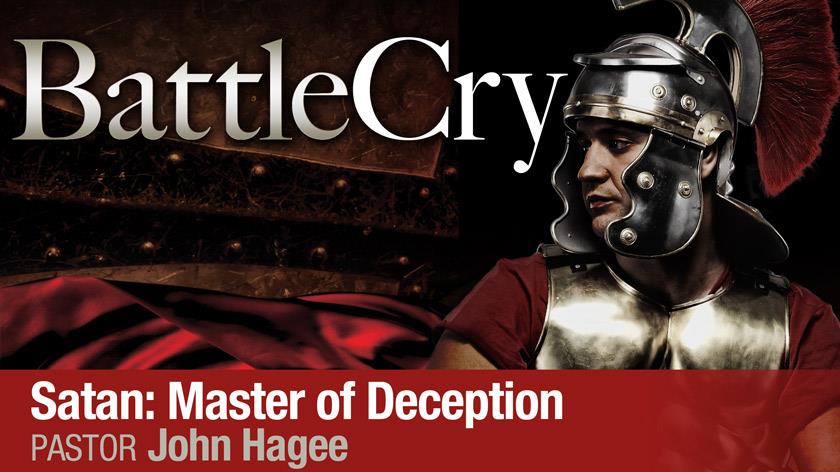

 ...
...
Last, but not least,
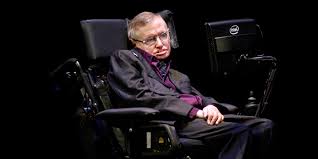
Stephen Hawking is a professed atheist who has stated that He is "not religious in the normal sense" and He believes that "the universe is governed by the laws of Science. But then again, He went on to say that " the laws may have been decreed by God, but God does not intervene to break the laws"?? That said, I think that one could describe him as being more like a depressed atheist - Just as I would be under his condition ... Think about it!
Being honest with you - as being a Strong Believing Follower of Christ/God “in my normal sense”… Along with all of those Famous Scientists… I wonder how strong we would really be … If we were to be stricken with and suffer from a rare early-onset slow-progressing form of amyotrophic lateral sclerosis (ALS), also known as motor neuron disease of Lou Gehrig’s disease that has gradually paralyzed Hawking for decades? Think about it… That said, I can understand why He's Felt the way He does. One thing for sure - if anything - I know that I would be somewhat Discombobulated and Bitter with my thinking over it...
But, Einstein had his doubts as well with His feelings over the Holocaust, but as life goes on - so too - did His as He realized that the more He studied Science the more He believed in God.
You know, with all things considered, Common Sense tells me that (Hell) Has to be - right here on Earth - or there wouldn't be so much - Evil, Pain and Suffering the way it is - that inflicts "we, the Living Souls of Human Beings Lives"...
I really don’t think that you have to be a Famous Scientist and or an Astrophysicist to believe in God, but I do believe in these Famous Scientists - because they more importantly used their common sense to prove their point in why they Believed … Somewhat like my being beyond my humble-inferior-frail-mind of intellectual thinking - way-way below these incredible credible "Famous Scientists who do believe in God" Wouldn’t you say? yet something to chew on while referencing "me and my website as being the same" - just as "God and Science as being one of the same thing". Richard Deem - CreationWiki, the encyclopedia of creation science
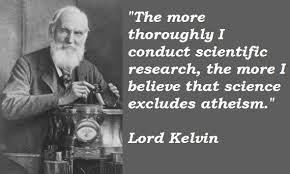 "Do not be afraid of being Freethinkers! If you think strongly enough you will be forced by Science to the belief in God, which is the foundation of all religions. You will find Science not Agnostic but helpful to Religion."
"Do not be afraid of being Freethinkers! If you think strongly enough you will be forced by Science to the belief in God, which is the foundation of all religions. You will find Science not Agnostic but helpful to Religion."
Designed, Written and Composed by,
Don L. Johnson
